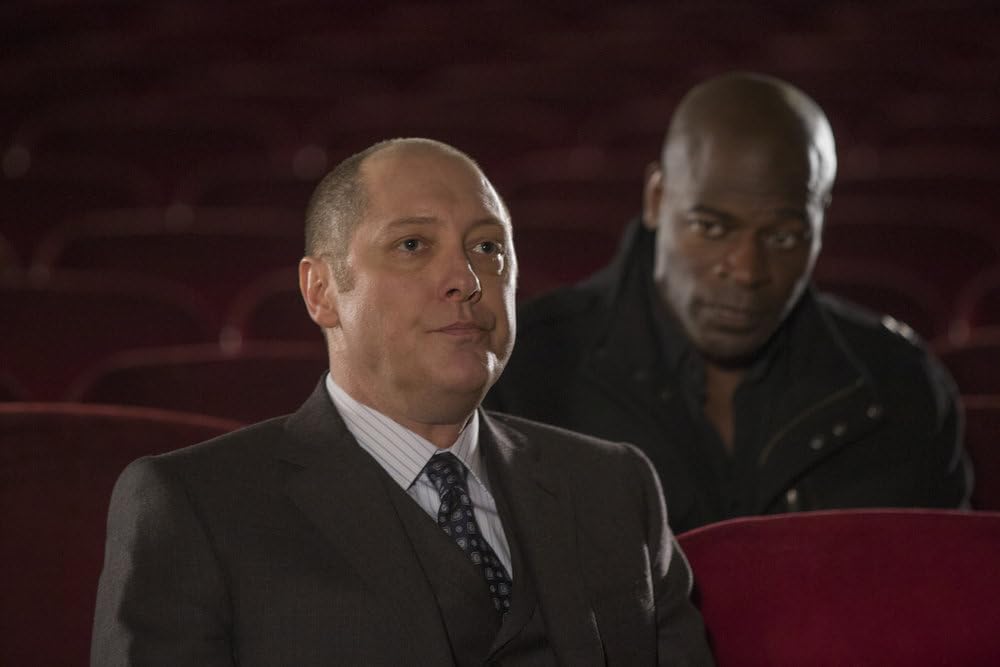The Blacklist thrilled viewers for years with its high-stakes cat-and-mouse storytelling and the magnetic bond between Raymond Reddington and Dembe Zuma. Then seasons 9 and 10 arrived—and divided the fanbase like almost nothing else in the show’s history. Controversial character pivots and increasingly implausible twists rattled the series’ foundations, with Dembe’s reimagined arc standing out as the most polarizing change of all. The transformation of Reddington’s trusted confidant into a figure working against him didn’t just surprise; it rewrote what made their relationship so compelling for eight seasons.
Why Dembe’s FBI Turn Raised Alarms
Season 9 opens with a jarring reveal: Dembe Zuma is now an agent of the FBI. For years, he had been Red’s shadow—bodyguard, confidant, conscience, and friend. The sudden switch introduced a built-in conflict of interest that repeatedly put him at odds with Reddington’s world. It wasn’t merely a new job; it reframed Dembe’s role within the show’s moral architecture.
Those early episodes signaled turbulence ahead, culminating in season 9, episode 5, “Benjamin T. Okara,” when Dembe breaks formally from Red. At first, the turn didn’t feel fatal to the character. He wavered, questioned the task force’s posture toward Reddington, and ultimately drifted back toward the friend he had protected for decades. It looked like the show might use his new position to test, but not erase, his loyalty.
Season 10 changed that calculus. In the double-episode finale, Reddington saves Dembe twice—first from prison, then from near-certain death. Yet Dembe later discloses Red’s location to FBI Counterterrorism Director Harold Cooper and MI6 agent Siya Malik, pointing them straight to Red’s villa near Carmona in Andalusia, Spain. His moving eulogy for Red in the closing moments could not overwrite the fact of that betrayal. If Reddington hadn’t died—struck down by a bull near his villa—he almost certainly would have faced capture and a public reckoning, courtesy of the friend he had saved time and again.
Eight Seasons of Devotion: The Bond That Defined The Blacklist

Before the final stretch, Dembe embodied unwavering commitment. For eight seasons, he was the person most responsible for keeping Raymond Reddington alive—and, at times, morally anchored. He wasn’t blind to Red’s crimes. He stayed because he believed in the possibility of Reddington’s better nature and because their connection was forged in rescue, gratitude, and mutual respect.
The series once flirted with the idea of Dembe’s betrayal in season 4’s “The Apothecary,” when he was suspected of poisoning Red in one of the show’s most shocking turns. That storyline ultimately affirmed his integrity: not only was he innocent, he helped hunt down the true culprit. The implication was clear—Dembe’s loyalty wasn’t transactional or fragile. It was a defining trait.
Their origin story, revealed in season 2’s “The Mombasa Cartel,” reinforced that depth. As a teenager, Dembe was rescued by Red from a brutal existence in a Nairobi brothel. Red protected him, mentored him, and later trusted him above all others. Dembe repaid that trust not through obligation but through belief—he saw a more humane man inside the infamous criminal, and he chose to stand with that man, even when it meant risk or moral discomfort.
Right up through the end of season 8, Dembe played the role of protector without hesitation. In the aftermath of Liz Keen’s death, he helped Reddington escape before the task force could close in. He opposed Red at times, questioning decisions and drawing boundaries. But he never crossed the line into outright betrayal. That’s why the post-season-8 reversal felt, to many viewers, like a repudiation of the character rather than a natural evolution.
A Character Pivot That Clashes With the Show’s Own Logic
The issue isn’t that Dembe showed complexity. It’s that the series reframed him in a way that clashed with eight seasons of careful setup. Reddington’s violent past and ongoing criminality were never new information to Dembe. He knew who Red was long before the pilot. If those realities didn’t shatter their bond after countless moral tests, why would season 9 and 10 be the breaking point—especially after Red repeatedly risked everything for him?
Becoming an FBI agent wasn’t, in itself, the problem. In a more balanced storyline, Dembe’s badge could have deepened the character’s inner conflict while preserving his fundamental loyalty. Instead, it positioned him as a recurring wedge between Red and the task force, culminating in an informant-style betrayal that contradicted the very faith that once defined him.
From Allegiance to Accusation: The Finale’s Breaking Point
By guiding Harold Cooper and Siya Malik to Red’s Andalusian villa, Dembe effectively set the stage for Reddington’s final downfall. The finale’s pathos—Red saving Dembe, Dembe honoring Red’s memory—was powerful, but it also highlighted the mismatch between the character we knew and the choices he made. The show asked viewers to accept Dembe’s heartfelt words and devastating actions as compatible, even as they landed like a breach of the bond that made The Blacklist unique.
How Seasons 9 and 10 Reflected a Broader Decline
Dembe’s arc wasn’t an isolated misstep; it was emblematic of a show struggling to reconcile its past with its endgame. After Liz Keen’s death at the end of season 8, The Blacklist lost a central anchor. Seasons 9 and 10, among the least celebrated by fans and critics, pivoted toward increasingly erratic plotting and murky motivations, often at the expense of coherent character development.
Viewers still held out hope for clarity—most notably, a definitive reveal of Reddington’s true identity. But the series finale left that mystery largely unresolved. In the absence of that closure, the weight fell on character arcs to deliver emotional resolution. Instead, Dembe’s turn, along with other late-stage detours, undercut the connective tissue that had kept audiences invested.
What the Show Gave Up When It Rewrote Dembe
Red was never a conventional hero, but his relationship with Dembe humanized him. Their trust and easy rapport framed Red’s ruthlessness with flashes of grace, guilt, humor, and loyalty. Remove or reverse that bond, and you dim many of Reddington’s most redeeming qualities. That’s the real cost of the final-season pivot: not just a controversial twist, but the erosion of the emotional lens through which we understood the show’s central figure.
Why This Matters for The Blacklist’s Legacy
The strongest long-running dramas honor their core relationships even as they evolve. The Blacklist once excelled at that balance. In reimagining Dembe as a man willing to steer the authorities to Reddington’s door—despite being saved by him twice in the finale—the series gambled with its most reliable emotional throughline. The result may be technically defensible as a bold choice, but it rings false when measured against eight seasons of painstaking character work.
What remains undeniable is how compelling Dembe was at his best: principled, calm under fire, a guardian who believed there was a better man inside Raymond Reddington. If the last two seasons muddled that legacy, many viewers will choose to remember the character as he was throughout the show’s prime—unflinching in loyalty, rich in moral nuance, and central to what made The Blacklist more than just another crime thriller.




